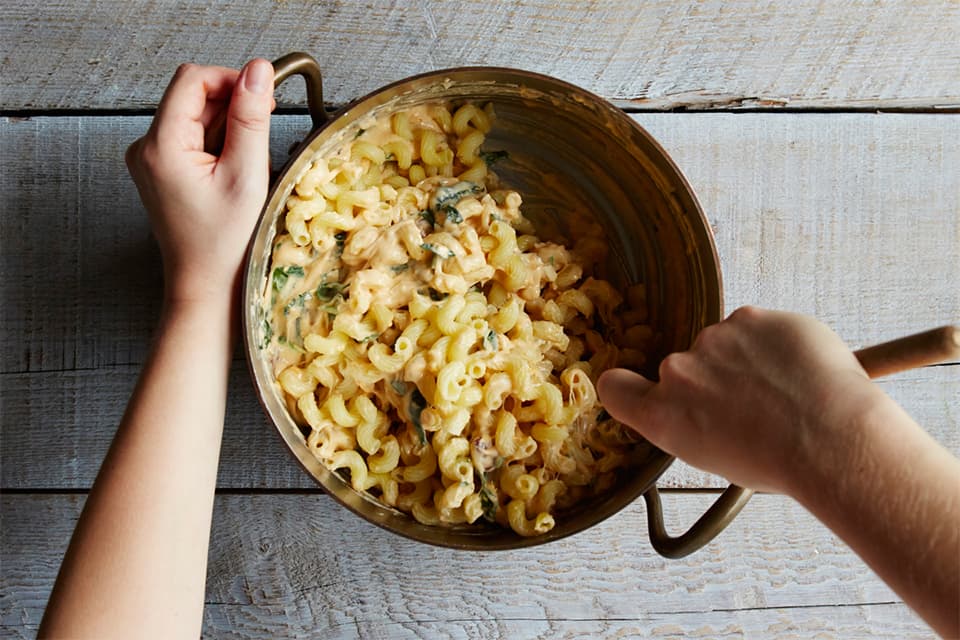It’s difficult to go a day without seeing a gluten-free product on store shelves or hearing the words “gluten-free” in passing. In 2014, the research company Nielsen asked consumers how a “gluten-free” attribute affected their food purchasing decisions. About 21% of respondents rated gluten-free as a very important factor, and 23% of them were very willing to pay a premium for gluten-free products. How did gluten-free become so trendy, and is it scientifically proven to help with weight loss? Let’s investigate!
What is gluten?
Gluten is a mixture of proteins (primarily, glutenin and gliadin) found in wheat, barley, rye and all their species and hybrids (such as triticale). When mixed with water, gluten creates a sticky, gluelike network that makes dough elastic, helps bread rise — and creates that satisfyingly squishy, chewy texture found in baked goods.
A Brief History of Gluten, and the Rise of Gluten-Free
We’ve been regularly consuming gluten since we started cultivating grains around 10,000 years ago, give or take.
In 1992, the USDA created the original American Food Guide Pyramid. It valued grains as one of the most important food groups, recommending at least 6–11 servings per day. Naturally, this led to an increased prevalence of grains in the American diet, and coincidentally, an increased prevalence in celiac disease cases.
Dr. Joseph Murray, a gastroenterologist and celiac disease expert at the Mayo Clinic, hypothesized that this increase in celiac cases may be due to two factors: the evolution of modern wheat and hygiene. Today’s wheat has been extensively hybridized, and we still have no idea how these changes may affect our immune systems. In terms of hygiene, our increasingly clean environments eliminate challenges (e.g, infectious agents, bacteria and parasites) that strengthen developing immune systems of infants and children, increasing their vulnerability to immune disorders and allergic diseases.
Wheat is the most widely consumed grain in America and one of the top five food commodities in the world. By 2020, the US gluten-free market is forecasted to be valued at $23.9 billion. With such a profitable market, it’s no wonder more and more gluten-free options are becoming available.
Who should be concerned about gluten?
For someone who has celiac disease (only 1% of the U.S. population) or is gluten-intolerant, a gluten-free diet is necessary because gluten does not break down properly. These undigested proteins cause musculoskeletal, reproductive, neurological, digestive and dermatological symptoms, including fatigue, headache, gas, bloating, constipation and diarrhea, according to the Celiac Disease Foundation.
Does science really say that gluten-free diets are effective for weight loss?
With top celebrities touting the benefits of glutenless diets and new gluten-free products popping onto shelves left and right, it’s easy to associate gluten-free with weight loss. But, despite what media outlets let on, there is no research to support that a gluten-free diet is effective for weight loss or necessary if you do not have celiac disease or gluten intolerance, according to the Journal of the Academy of Nutrition and Dietetics.
In fact, going on a gluten-free diet may be detrimental to your health and lead to nutrient deficiencies — specifically the nutrients that whole-wheat flours contain and refined flours are commonly fortified with, including: iron, folate, thiamin, niacin, calcium, riboflavin and fiber. This may be because gluten-free diets are typically lower in whole grains — which is not very favorable for weight-loss goals, as a higher whole-grain intake is correlated with a lower body mass index. On top of that, gluten-free products are typically higher in fat and calories and lower in fiber than their gluten-containing counterparts, which may lead to weight gain, elevated lipid levels and constipation.
In a study of 371 celiac patients, 82% of initially overweight patients gained weight after two years on a gluten-free diet. After reviewing clinical records of 149 children with celiac disease who followed a gluten-free diet for at least 12 months, one study found that the percentage of overweight children almost doubled, from 11% to 21%. Although these studies show weight gain on a gluten-free diet, why do some still believe in it?
5 Reasons Why People May Lose Weight When They Go Gluten-Free
- They eat less because a gluten-free diet is restrictive.
- Many carbohydrate-rich foods like bread, cereal and pasta are eliminated.
- Many high-calorie junk foods like cakes, muffins and cookies are eliminated.
- Many healthy foods are naturally gluten-free, including beans, meat, nuts, dairy, fruits and veggies.
- They eat less or eat more produce because gluten-free packaged goods are pricier than their normal counterparts.
That being said, more randomized, controlled trials are needed to clarify the relationship between weight loss and individuals who adhere to a gluten-free diet that is not medically prescribed.
Key Takeaways:
- Avoiding gluten is unnecessary for the vast majority (i.e., 99%) of us.
- A gluten-free label does not automatically equate to “healthy.”
- Don’t write off whole grains out of fear of gluten — higher whole-grain intake is linked to lower BMI, and whole grains provide an array of beneficial nutrients from fiber to antioxidants.
- Gluten-free or not, weight loss comes from a well-balanced diet and regular exercise.
- If you are following a gluten-free diet, be particularly mindful about your food intake. Consult a registered dietitian to ensure that your nutrient needs are met.
If you’ve been recently diagnosed with celiac disease or gluten intolerance, don’t miss out on five things you need to know about going gluten-free. While you’re at it, familiarize yourself with the new(ish) gluten-free labeling law, and check out some healthy gluten-free recipes from our blog!




